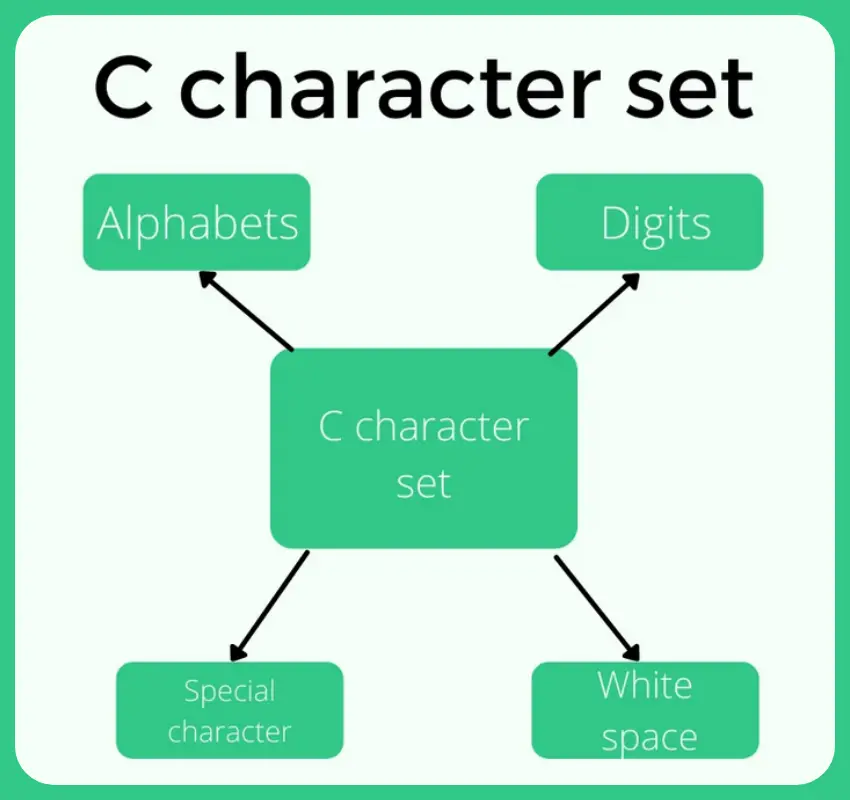The C character set, also known as the "character encoding," defines the set of characters that can be used in a C program. The character set is specified by the C standard and includes the following elements:
1. **Letters:** The character set includes both uppercase and lowercase letters from the English alphabet. This means you can use characters from 'A' to 'Z' and 'a' to 'z' in C programs.
2. **Digits:** The decimal digits '0' to '9' are part of the C character set and can be used in variable names, constants, and other parts of a C program.
3. **Special Characters:** C includes various special characters that have special meanings in the language. Some of the important ones include:
- **Whitespace Characters:** These include spaces, tabs, and newline characters. They are used for formatting and separating parts of the code.
- **Punctuation Characters:** These characters are used to structure C code. Common punctuation characters include '{', '}', '(', ')', '[', ']', ',', ';', and '.'.
- **Operators:** Operators such as '+', '-', '*', '/', '=', '>', '<', and '&' are part of the character set and are used for various operations in C.
4. **Escape Sequences:** C also includes escape sequences, which are used to represent special characters that cannot be easily typed or displayed directly. For example, '\n' represents a newline character, and '\t' represents a tab character.
5. **Extended Characters:** The C character set can also include extended characters depending on the character encoding being used. Common character encodings used in C include ASCII (American Standard Code for Information Interchange) and UTF-8 (Unicode Transformation Format-8).
It's important to note that the C character set is influenced by the character encoding used by the system or compiler. In many cases, C uses the ASCII character encoding as a basis, which represents characters using 7 or 8 bits. However, with the advent of Unicode and internationalization, modern C compilers often support extended character sets like UTF-8, which allows for the representation of a wide range of characters from different languages and scripts.
When working with characters outside the basic ASCII range or dealing with internationalization, it's essential to consider the character encoding used by your compiler and ensure proper handling of extended characters to avoid issues related to character representation and encoding.

